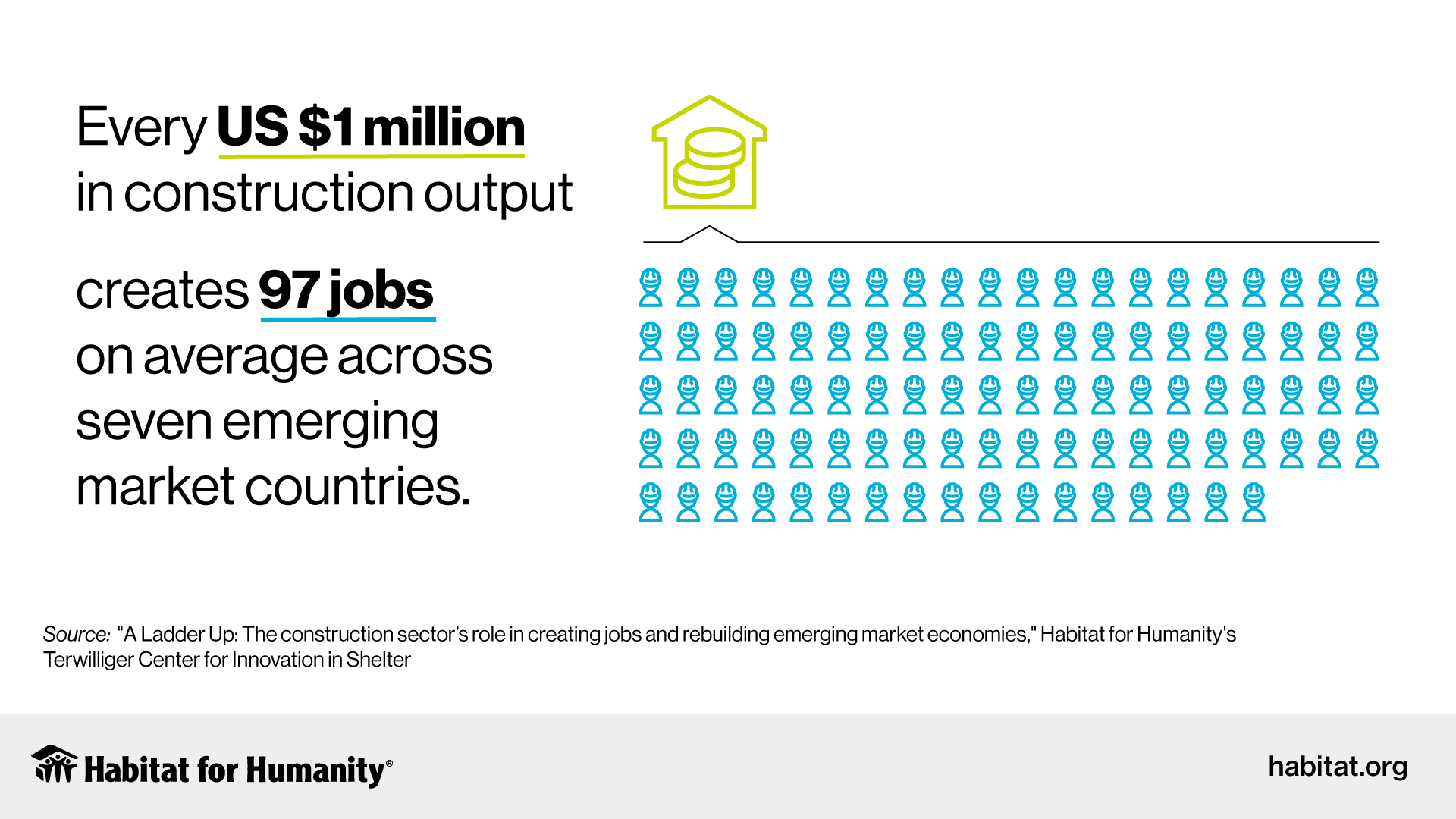The construction industry — led by homebuilding — is a large, often-overlooked source of jobs in emerging market economies, according to a report released today by Habitat for Humanity to mark World Habitat Day.
Every $1 million in construction output creates an average of 97 jobs in emerging markets, economists at the University of Pennsylvania, the University of Southern California, and the University of Washington found in the report commissioned by Habitat for Humanity’s Terwilliger Center for Innovation in Shelter. That compares to 81 jobs created per $1 million in agricultural output and 96 jobs per $1 million in output in the accommodation and food services sector, according to the report, which focuses on 9 countries: Brazil, Colombia, India, Indonesia, Mexico, Peru, the Philippines, South Africa, and Uganda. The figure was even higher in the Philippines, with every $1 million in construction producing 165 jobs.
“Investment in residential construction represents a potential win-win-win in emerging markets because it creates such a large number of jobs locally, helps close stubborn gaps in affordable housing and stimulates the larger economy,” said Patrick Kelley, vice president of Habitat’s Terwilliger Center. “These findings are critically important for low- and middle-income countries deciding what areas to prioritize as they work to build back economies weakened by the COVID-19 pandemic, particularly in a world where 1.6 billion people still lack adequate shelter.”
The report, titled “A Ladder Up: The construction sector’s role in creating jobs and rebuilding emerging market economies,” also provides evidence that many of those jobs go to workers with lower levels of formal education. These are relatively well-paying jobs compared to other employment options for workers with limited educational attainment, the researchers found.
Construction workers in emerging markets often work outside of formal, regulated channels, according to the report, with informal employment representing 50% of construction workers in South Africa to more than 90% of those workers in countries such as India, Indonesia and Uganda. Residential construction dominates the sector, the report found. In Brazil, Colombia, and Mexico, for example, residential construction accounts for more than 80% of total building construction.
The researchers also concluded that measures to improve the working conditions and on of construction workers can help urban areas — includtheing those hit hard by the pandemic a more sustainable, equitable way.



